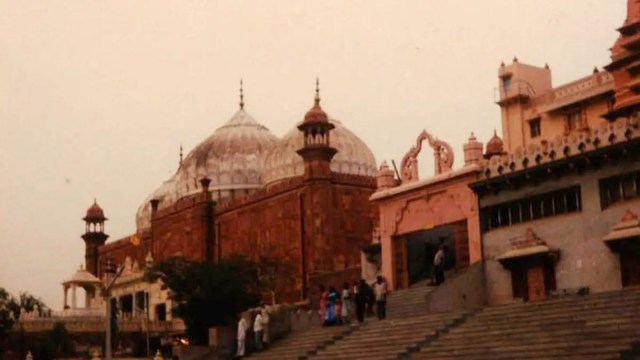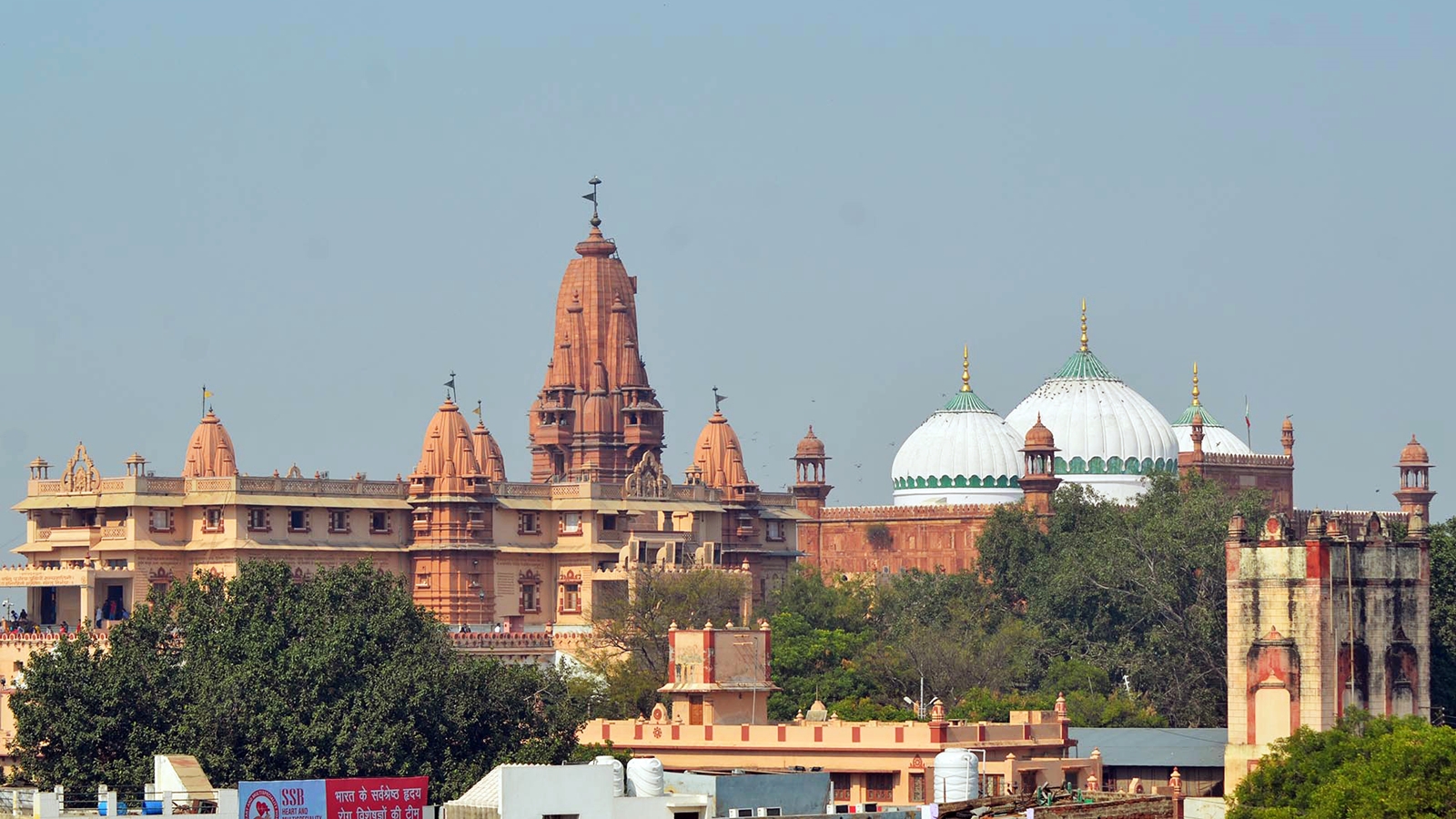Weeks after the Archaeological Survey of India conducted a survey of the Gyanvapi mosque next to the Kashi Vishwanath temple in Varanasi, the Allahabad High Court Thursday allowed an application for the appointment of a commission to inspect the Shahi Idgah mosque complex in Mathura.
Hindu petitioners contend that the mosque was built on the Krishna Janmasthan, the birthplace of Lord Krishna.

Speaking to The Indian Express after the bench of Justice Mayank Kumar Jain announced its order, Advocate Ranjana Agnihotri, who is listed as the “next friend” of Lord Krishna in the matter, said, “The Court has allowed our plea for appointment of a commission to survey the site.”
According to the Hindu petitioners, the Shahi Idgah mosque in Mathura was built on the orders of Emperor Aurangzeb after demolishing a temple.
The latest application, filed under Order XXVI Rule 9 of the Code of Civil Procedure by the Hindu petitioners, is part of a petition (353/2023) filed by eight persons including the “next friend” of Bhagwan Shree Krishna Virajman. It sought a survey of the Shahi Idgah mosque which was allowed Thursday by Justice Jain.
 The Shahi Idgah mosque and the Krishna Janmabhoomi temple are seen side-by-side in Mathura. (ANI)
The Shahi Idgah mosque and the Krishna Janmabhoomi temple are seen side-by-side in Mathura. (ANI)
Order XXVI Rule 9 of the CPC, Justice Jain said in his order, enables the Court to appoint a commission to hold local investigation for the purpose of elucidating a matter in dispute.
At least a dozen cases have been filed in courts in Mathura by different petitioners. A common thread in all the petitions is a prayer for the removal of the mosque from the 13.37-acre complex, which it shares with the Katra Keshav Dev temple.
Story continues below this ad
In May this year, the Allahabad High Court had transferred to itself all the suits on the Sri Krishna Janmabhoomi-Shahi Idgah Masjid dispute.
Advocate Punit Gupta, who appeared on behalf of the UP Sunni Central Waqf Board, said, “The Allahabad High Court has allowed the Hindu side’s application seeking an inspection of the disputed site by an Advocate Commissioner appointed by the Court. We had also filed an application seeking rejection of the plaint filed by the Hindu side. But that application is still pending. We had said that our application seeking cancellation of the suit be heard first, but the opposing side said their application under Order XXVI Rule 9 of the CPC be heard first.”
Late Thursday, Gupta said the High Court order has been challenged before the Supreme Court.
“The top court will hear our application tomorrow. We have contended that our application questioning the maintainability of the suit should have been decided before the High Court ordered an inspection of the site,” Gupta said.
Story continues below this ad
Advocate Vishnu Shankar Jain, who appeared on behalf of the Hindu petitioners, told reporters, “The Court has allowed our demand that an Advocate Commissioner must be appointed. Who will be the Advocate Commissioner, what will the modalities be, and whether it will be a three-member committee, all these things will be decided on December 18.”
“Our demand was that in the Shahi Idgah mosque, there are lots of signs and symbols, and to know the actual factual position, an actual Advocate Commissioner is required. The Court has allowed our application,” he said.
In its order, the High Court said it “does not find any substance in the submissions” made by the counsel for the Waqf Board and the mosque committee that “the application for rejection of plaint should be decided first in order”.
“It is a settled law that Order XXVI Rule 9 of the Code enables the Court to appoint commission to hold local investigation for the purpose of elucidating a matter in dispute and to bring on record the actual and factual status of disputed property for just and proper adjudication of the dispute,” Justice Jain said.
Story continues below this ad
“It is pertinent to mention here that in the proceedings for appointment of commission by the Court, the defendants can participate. Moreover, if they feel aggrieved by the report of the commission, they have an opportunity to file their objections against the said report,” he said.
“It is also to be kept in mind that by appointment of a panel of three advocates as commission, either party would not suffer any harm or injury. The commissioner report does not affect the merits of the case. It is also to be noted here that during the execution of the commission, the sanctity of the campus can be directed to be maintained strictly. Further it may be directed that no harm or injury be caused to the structure in any manner,” he said.
He said “the prayer for appointment of commission by the plaintiffs cannot be refused on the ground that it is filed after a delay of almost three years”.
“So far as the modalities and composition of the commission is concerned, this Court feels it proper to hear the learned counsel for the parties for such purposes,” Justice Jain said, listing the matter for further hearing at 2 pm, December 18.



 The Shahi Idgah mosque and the Krishna Janmabhoomi temple are seen side-by-side in Mathura. (ANI)
The Shahi Idgah mosque and the Krishna Janmabhoomi temple are seen side-by-side in Mathura. (ANI)





